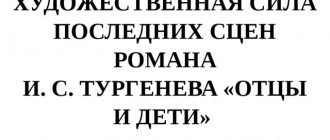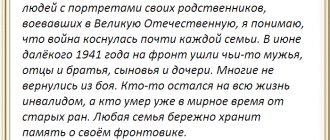Common topics in OGE essays and their definitions
OGE essay topics usually touch on some definition and ask the student to fully reveal its meaning. In order for the flow of thoughts to go in the right direction, you need to start from the basic meaning of the definitions. Here are the most common ones:
- Friendship;
- Love (including maternal, friendly);
- Kindness;
- Indifference;
- Life values;
- Mutual assistance;
- Responsiveness;
- Choice (moral);
- Human inner world;
- Betrayal;
- Loyalty;
- Happiness;
- Strength of mind.
The meaning of most of them does not need to be explained. But the exam may include topics that require a lot of knowledge. Let's look at them in more detail.
Nobility is a quality of a person that speaks of his high morality, high intellectuality, as well as his honesty and dedication.
Tactlessness is a quality that describes a person who often puts others in an awkward position, often unknowingly. Such a person does not know how to behave in society and does not follow the rules of behavior.
Lack of spirituality - this quality is used to describe a person who has a poor spiritual world, he has low or no values, he does not know the norms.
Vandalism is the name given to the destruction of cultural monuments or places of any value or art. People who do this are called vandals.
Harmony is a feeling of balance in everything, love for yourself and others, complete satisfaction in your spiritual needs. Harmony can exist both within one person and among phenomena, companies, objects, etc.
Delicacy is a quality that can be called the opposite of tactlessness. People who are called delicate are distinguished by politeness, accuracy in communication and handling of things and people.
Spirituality is a quality that defines a person who strives for internal improvement, separating himself from base feelings.
Arrogance is a quality characteristic of arrogant, arrogant people.
Xenophobia is fear, dislike of something new, alien, unknown, incomprehensible, foreign.
Stinginess - excessive greed, stinginess, frugality.
Cowardice is a person’s lack of a strong core, stamina, and courage.
Hypocrisy is feigned virtue, hypocrisy, piety.
Look up the meaning of words you might come across in the exam in advance to better formulate your point of view.
Open lesson on the topic “Essay. The concept of genre" (9th grade)
Open Russian language lesson in 9th grade on the topic: “Essay. The concept of genre"
Type:
speech development lesson.
Form:
workshop
Lesson objectives:
- Introduce the concept of “essay”;
- Develop skills in speaking situations on a given topic;
During the classes
1. Organizational moment.
2. Vocabulary dictation.
State policy; reasoning on a given topic; modern journalism; popular commentator; problem essay; interestingly written essay; features of national policy; interview with the famous essayist; read serious literature; state policy, thoughts about the future.
Vocabulary dictation conversation
:
Find synonyms in the dictionary dictation. Write them down. /Reflection, reasoning, sketch, essay.
Find words with the same root and sort them according to their composition. /Essay, essayist
. It is necessary to pay attention to the fact that the word “essay” is an indeclinable noun, so it does not have an ending, not even zero/
How was the word “essayist” formed? /This word is formed from the word “essay” using the suffix – ist, this is a suffixal way of forming words.
What is the meaning of the suffix – ist? / Indicates a person’s occupation, his profession.
Who is called an essayist? / A person who writes an essay
.
Teacher:
Try to formulate the topic of the lesson, drawing conclusions from our conversation.
(Essay as a genre).
3. Studying a new topic.
1) Working with a dictionary.
Determine the lexical meaning of the word “essay” using the dictionary.
(An essay is an epic genre where the author argues and reflects on a given topic.
In the encyclopedic dictionary . Essay (from French experience, sketch) is a small genre of philosophical, literary-critical, historical-biographical, journalistic prose, combining the emphatically individual position of the author with a relaxed, often paradoxical presentation, focused on colloquial speech. The founder of the genre is M. Montaigne - 16th century - French writer, humanist philosopher. Author of the book "Experiments".
In the explanatory dictionary, the concept of essay is a genre of journalism that contains reflections on an event, reasoning on a given topic, mostly of a lyrical nature.)
4) Reading theoretical material from the textbook.
Teacher's word.
What does the term “syntactic parallelism”, “parcellation” mean?
Parcellation is the selection of a member from a sentence, most often a secondary one, and its design (after a period) in the form of an independent incomplete sentence.
Syntactic parallelism is a construction in which all sentences included in a given segment of text are constructed according to the same syntactic scheme.
Remember that the main role in the essay is played by
:
- not the fact itself, but the impressions and associations it evokes in the author;
- thoughts and reflections;
- an original, sometimes paradoxical view of the problem;
- figurative and aphoristic speech;
- a relaxed, conversational style of presentation.
- Question-answer form of presentation;
- Chain of questions;
- Rows of homogeneous members;
- Sentence breakdown;
- Introductory words
5. Consolidation
1) Practical work to prepare for the home essay “Me and My Time”
2)
Independent work using a card (in pairs
).
Exercise
: Determine whether a student's essay is an essay. Give reasons.
Text for independent work (in pairs)
.
Evening. It’s dark outside the window, only the lantern reveals a swarm of snowflakes as a dim yellow spot. I sit by the window and look at their slow movement, trying to understand the laws of their chaotic dance. From thinking about snowflakes I “jump” to thinking about time: now time seems to have slowed down, stopped and flows and dances along with the snow. I sigh, it's time to sleep. And tomorrow again an early rise, a quick breakfast, school and lessons, lessons, lessons... and time will already run, even rush...
...What time is it? Fast, fun, burning, difficult, abstract? No, it’s just time, which can only be divided into past, present and future...
...I live in the future. I’m hurrying up the days, the weeks, I want school to end quickly, for the last bell to ring, for the graduation waltz to sound. During lessons, I occasionally look around, look at my classmates, I feel that they, like me, are already living in the future: they are studying in all kinds of preparatory courses, the scope of communication has expanded to infinity. This new communication is fascinating, slightly intoxicating, and stimulating, so everyone is looking forward to finishing lessons and meeting new friends. Ask anyone from my 11th year where it is more interesting, where you are striving, everyone will answer: most likely July, entrance exams and “students”. For us, time flies, even rushes, because we are young, full of strength, enthusiasm, energy, we are bold in choosing decisions. We are the future of our country, the tomorrow of Russia.
The altruist Danko, the ascetic Rakhmetov, the fanatically devoted to the revolution Pavka Korchagin are far from us and incomprehensible to us. We are closer to the “reasonable egoism” of Lopukhov and Kirsanov. We will first achieve success ourselves, for ourselves, and then for the country.
But if trouble happens, we will come to the aid of Russia; if necessary, we will stand up for its defense; if necessary, we will work seven days a week, “starting Monday on Saturday.” Among my peers there is this greatest feeling - patriotism. But maybe it is “dormant” for now and something extraordinary will be needed to “wake it up”.
They say that tragedies unite a nation. After September 11th, Americans, even the most lazy and selfish ones, were awakened to self-awareness. And we are not Americans, we are Russians, which means we are patriots from the very beginning, at the genetic level. Of course, neither I, nor my peers, nor anyone else want tragedies. Enough of them have happened in the past and present. We wish peace, tranquility, confidence that tomorrow will come both for us and for Russia...
... Human memory is amazing! My grandmother sometimes doesn’t remember what happened yesterday, what we talked about on the phone, but she will tell about the events of her distant childhood and youth in detail, highlighting the details with bright colors.
My dear, dear old people have always lived hard and worked hard. Mom told how, as a little girl, on holidays her grandmother gave her 5 kopecks, and her mother, proudly handing them to the seller in the store, solemnly said: “One Red Poppy candy!” Not two, three, one hundred grams, no, just one. Now grandparents receive good pensions, but they still continue to save: they do not buy exotic fruits, raw smoked sausages, chocolate, while saying: “We are not used to luxury.” This is how they are, our old people: they don’t spend an extra ruble on themselves, they save it for their children and grandchildren to help them, for a “rainy day” for themselves. Apparently, life taught them to be strict, save, and did not spoil them with gifts.
I look at them, my dear grandparents, with great respect, they are “Russia’s past, but worthy of its yesterday.”
What about Russia today? Maybe it's the songs we sing, the books we read, the films we watch? These are “Lyube”, not Shura, books by Lyudmila Ulitskaya, not Eduard Limonov, films by Nikita Mikhalkov, not “soap series”.
The present of Russia, its “today”, is made up of the past and hopes for the future. This is me and my family, all of “me” and their relatives and friends together.
Conversation. Questions:
— Did you like the author’s thoughts?
— Can this work be called an essay?
- Why? Support with examples from the text.
(Conclusion: this work can be classified as an essay genre).
Add. assignment to the text
according to options: 1 var – underlined sentence of 1 paragraph – underline gram. basis, draw a diagram.
2 var is the number of grams. basics - underlined sentence 3 paragraph, draw a diagram.
6. Reflection.
What is special about the essay genre?
What new did I learn in class?
7.Homework.
Write an essay on the topic “Me and my time”
OGE essay 9.3 examples of topics
All topics are related to the fact that you will have to explain and reveal the meaning of the meaning of a certain word. But the wording of these topics may be different:
- What's happened…? (What is harmony?)
- ... is... (Spirituality is...)
- What kind of person can be called... (What kind of person can be called unspiritual?)
They all have the same meaning, so it’s worth paying attention to the words. Here are the topics for OGE essays that may actually appear on the exam:
- How do you understand the meaning of the word “glory”?
- Imagination is...
- What is a miracle?
- How do you understand the meaning of the expression “Purpose in life”?
- What is a dream?
- Envy is...
A complete list of important topics can be found here.
A simple way to ensure that you don’t come across unfamiliar words is to write essays as often as possible now. On a variety of different, most complex and incomprehensible topics. This way you can hone your skill to mastery, so that the OGE becomes a place where you can proudly show off your talent. All in your hands!
Essay topics on Russian language and literature
The theme of the work is usually a quote from a famous person. It may cover the following topics:
- moral qualities of a person (“What makes a man rich is his heart” by L.N. Tolstoy);
- Homeland and duty to it (“It is pleasant and honorable to die for the fatherland” Horace);
- the problem of fathers and children (“Parents least of all forgive their children those vices that they themselves instilled in them” F. Schiller);
- historical events and your attitude towards them (“Do we have the right to forget what peace and freedom cost us?” S. S. Smirnov);
- culture, art, science (“In science you must simultaneously believe and doubt” L. Hirshfeld);
- modern problems of Russia and humanity (“The environment is you and me” by C. Kanati).
In this case, in order to write an essay on literature and the Russian language, you need to retell the essence of the quote in your own words and express your attitude: do you agree with it.
Essays are also written based on text (for example, this type is used on the Unified State Exam in Russian). Typically these texts belong to authors of the 20th century. In such an essay, you need to reflect the main idea of the given passage and express your attitude to the author’s position.
Essay writing plan on literature and Russian
Regardless of the type of essay, its structure is the same. The work includes the following items:
- introduction;
- problem formulation;
- commentary on the topic (relevance of the problem, significance for society);
- your position;
- arguments supporting it;
- conclusion.
The main requirement for an essay on Russian language and literature is that it must be literate
Arguments and evidence in essays on literature and Russian
To prove your position, you need to give 2 arguments. You should not select examples from your personal life; it is better to turn to classical literature of the 19th and 20th centuries.
For example, any work touches on the topic of human moral qualities, and many writers of the second half of the 20th century addressed the topic of war. Other topics are narrower, but even for them you can find convincing arguments.
By the way! For our readers we have prepared a 10% discount on any type of work





